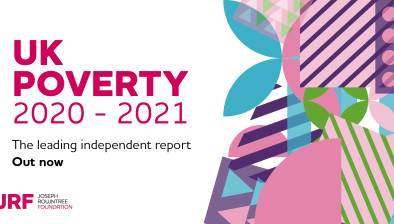Iain Duncan Smith to abolish Child Poverty Act targets

The UK government has announced plans to scrap the target to eliminate child poverty by 2020.
Work and pensions secretary Iain Duncan Smith yesterday revealed a new way of measuring child poverty would be introduced, scrapping targets introduced in 2010 as part of the Child Poverty Act.
In a statement to the House of Commons, Mr Duncan Smith, who has been carrying out a controversial overhaul of welfare since 2010, insisted that his intention was to tackle the causes of child poverty rather than the symptoms.
The announcement comes a day after a report from the four UK children’s commissioners said the government’s cuts to benefits and welfare are harming the most vulnerable children.
Addressing MPs, Mr Duncan Smith said: “Eradicating child poverty is an absolute priority for this government, and I have consistently argued that it is not enough to tackle the symptoms without also tackling the underlying causes.
“The measures announced today are the foundation of a new, comprehensive way of addressing poverty and reflect our conviction that work is the best route out of poverty.
“Our new approach will drive effective government action by focusing attention on making meaningful change to children’s life chances.”
The minster labelled the current child poverty measure – defined as 60 per cent of median income – as “deeply flawed” and “a poor test of whether children’s lives are genuinely improving”.
The government will now bring forward legislation to replace the Child Poverty Act 2010 with new measures focused on levels of work within a family and improvements in education attainment.
The government will also develop a range of other measures and indicators of root causes of poverty, including family breakdown, debt and addiction, setting these out in a children’s life chances strategy.
The Joseph Rowntree Foundation (JRF) called for a comprehensive strategy to reduce poverty across all ages saying that “arguing about the measure does not equate to action to reduce poverty”.

Julia Unwin, chief executive of the JRF, said: “JRF agrees that raising educational attainment and getting people into work are central to addressing poverty, as well as giving children the opportunities they deserve. We welcome the addition of new indicators because poverty is complex - they must, however, clearly measure their direct effects on poverty.
“But evidence shows that income matters to children’s outcomes and removing the measure from government policy would be a mistake. The current two proposed measures will miss the many families who have one or more parents in work but have very low incomes which damage children’s lives now and prospects for the future. We therefore urge the government to reinstate an income measure, ideally linked to a cost of living measure, to give a proper focus on families’ real ability to afford the basics of life in a decent society.
“This country needs a comprehensive strategy to reduce poverty across all ages otherwise poverty is likely to rise. Arguing about the measure does not equate to action to reduce poverty. Removing poverty from the remit of the Social Mobility and Child Poverty Commission is a backwards step. JRF wants instead to see a Poverty Commission whose remit would be to hold governments to account on their plans and actions to reduce poverty for all ages.
“Improving productivity, addressing low pay, market reform and affordable housing need to be part of any such strategy. Changing the Child Poverty Act creates an opportunity for action to address these factors and we urge the government to take these issues seriously so that we can deliver a long-term and sustainable improvement to the life chances of disadvantaged children.”
In a report to the United Nations earlier this week, the children’s commissioners for England, Wales, Scotland and Northern Ireland said government austerity measures had failed to protect the most disadvantaged and vulnerable groups.
The study highlighted the policies adopted by the coalition government in response to the global financial crisis, as well as the expected cuts under the new Conservative administration.
“The best interests of children were not central to the development of these policies and children’s views were not sought,” the report said.
“Reductions to household income for poorer children as a result of tax, transfer and social security benefit changes have led to food and fuel poverty, and the sharply increased use of crisis food bank provision by families.”
The commissioners said poorer children were living in inadequate housing in some parts of the UK because of insufficient affordable homes.
They added they were “deeply concerned” by reports the government was planning to scrap the Child Poverty Act which requires ministers to put in place measures to eradicate child poverty.
A forecast from the Institute for Fiscal Studies suggesting the number of children living in poverty could more than double from 2.3 million to 4.7 million by 2020 was also cited.









